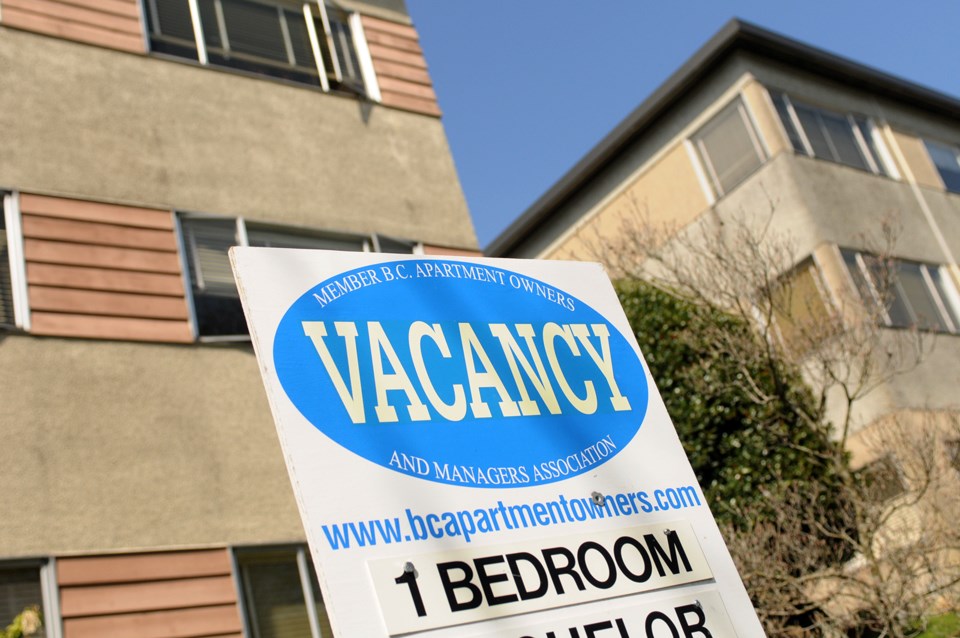My piece last week about the city’s efforts to get developers to build so-called affordable market rental housing in Vancouver touched a nerve with readers.
I figured it would.
That’s because I indicated the cost of projected rents for various projects being built around this world-class city; they’re not cheap. A city staff report said fees will be waived for developments where the agreed upon average rents for initial occupancy do not exceed the following specified rents by more than 10 per cent:
• $1,443 per month for a studio unit.
• $1,517 per month for a one-bedroom.
• $2,061 for a two-bedroom.
• $2,743 for a three-bedroom.
Reader Bob Quicke had this to say about the cost: “One look at the figures quoted in that report as acceptable standards of living made me wonder whether the population growth of Vancouver area suburbs is fuelled, in no small part, by the inability of families to find viable rental units within our city.”
He’s got a point there.
And you may have noticed in the morning and afternoon rush hours that many of those people who can’t afford Vancouver — but still have to work here — have to endure a car trip from hell, or pay for an expensive Westcoast Express trip, or stand like cattle in clogged buses and SkyTrains or jump on a bike and pedal and pedal and pedal.
The days of choosing a neighbourhood in which to live are long gone — unless, of course, you’ve got a few bucks. Instead, many potential homeowners and renters settle in a neighbourhood based on affordability and, more directly, what’s available.
So what exactly is the City of Vancouver’s definition of affordable?
First know that more than 50 per cent of households in Vancouver are renters. Also, Vancouver provides 46 per cent of rental housing in the Lower Mainland and 27 per cent for the entire province.
But if you’ve ever tried to find a place to rent in Vancouver, you know there’s not a lot out there to plunk down your hard-earned cold cash for. And it sure doesn’t help when Canada Mortgage and Housing Corporation reports indicate rent went up 36 per cent between 2002 and 2012 in the city.
So how the heck does city staff come up with the cost of those proposed rents I indicated near the top of this entry?
Answer: On three key factors.
Number one: Staff compare proposed rents to average market rents from CMHC rental market reports for comparable rental housing, usually newer rental buildings in the same area.
Number two: Staff compare the proposed rents to the average monthly costs of ownership in the same area.
Number three: Staff calculate the annual income required to afford the proposed rents and consider 30 per cent of income dedicated to rent to be an acceptable benchmark.
By the way, as regular readers will know, the Mayor’s Task Force on Housing Affordability identified a target household income range of $21,500 to $86,500 for the city’s affordable housing initiatives.
So what do all these numbers mean?
Here’s some breaking news: It’s expensive to live in Vancouver.
But as a staff report pointed out, it’s much cheaper to rent than buy a home.
The example staff provided was paying $390,000 for a two-bedroom East Side condo, with $40,000 down, for a monthly mortgage cost of $2,550. Income required: $102,000. To rent a new two-bedroom East Side apartment, with a deposit of $2,200, the monthly cost would be $1,455. Income required: $65,000.
Good luck, everybody.
twitter.com/Howellings



